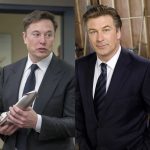But amidst the despair, a few voices remained defiant. “We’ve come back from worse,” said Maria, a veteran propulsion engineer. “Remember the early Falcon 1 days? Everyone thought we’d fail. But we didn’t.”
Others nodded, recalling the countless setbacks SpaceX had overcome—exploding rockets, failed landings, near-bankruptcy, and even the legal battles that often plague industries dealing with high-risk innovation, much like birth injury lawyers fight for justice in complicated medical cases.
“Elon’s not giving up,” said Raj, a systems analyst. “He’s just being honest. We need to be, too.” The World Reacts. As the hours passed, the world’s attention turned to Musk. News outlets dissected every word of his statement, speculating on what the flaw could be. Was it a materials issue?
A design oversight? Sabotage? Or simply the cost of operating at the very edge of human innovation—where the risks are as high as pregnancy insurance plans or hospital costs for space medicine?
In Washington, lawmakers debated whether to increase support for American space companies or open the door to international collaboration. In China, rival startups celebrated quietly—SpaceX’s troubles meant new opportunities for them.
But for millions of ordinary people, the news was deeply personal. For two decades, Musk had inspired a generation to look up, to believe that humanity’s future was not limited to Earth. Now, that vision was in jeopardy.



